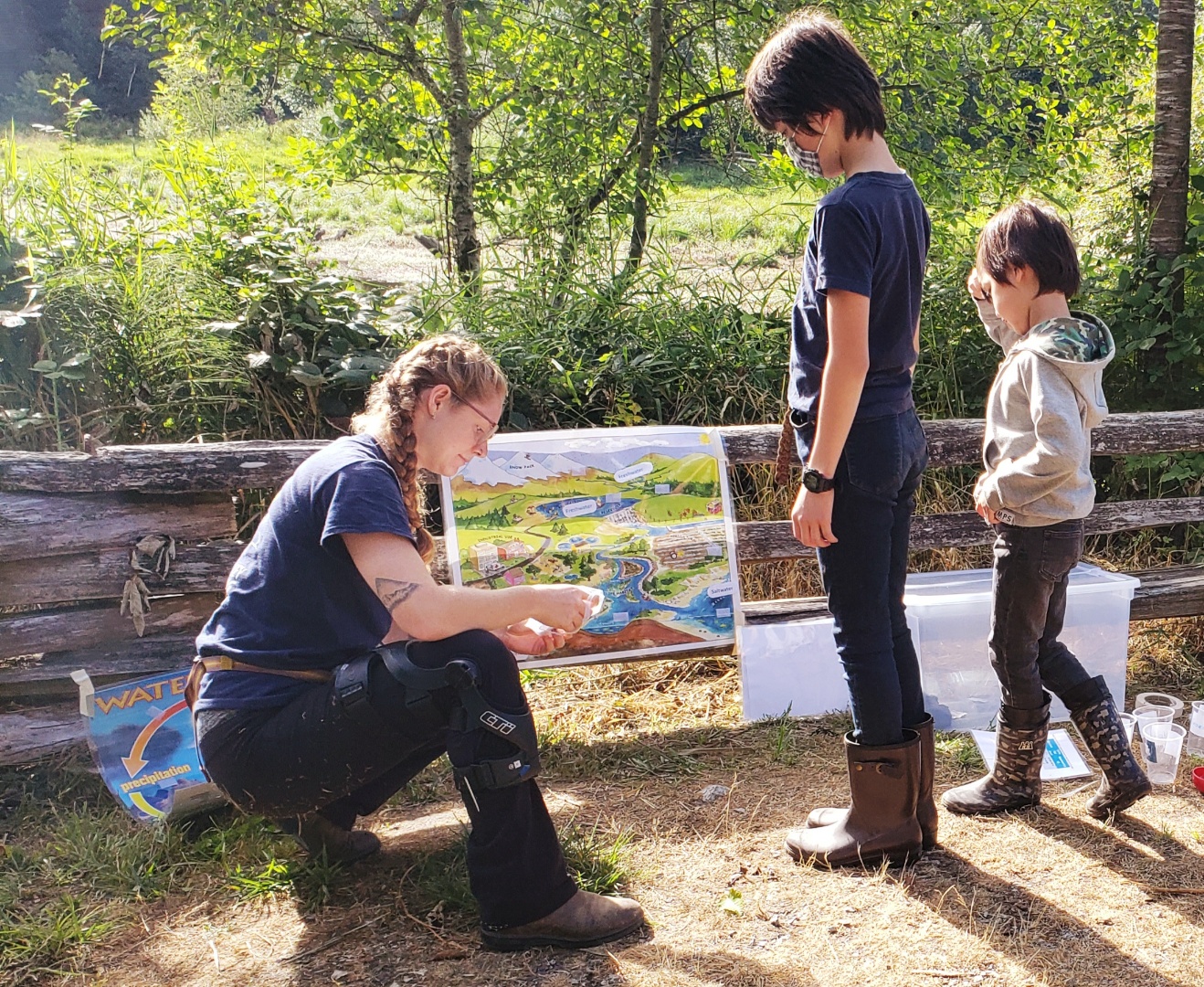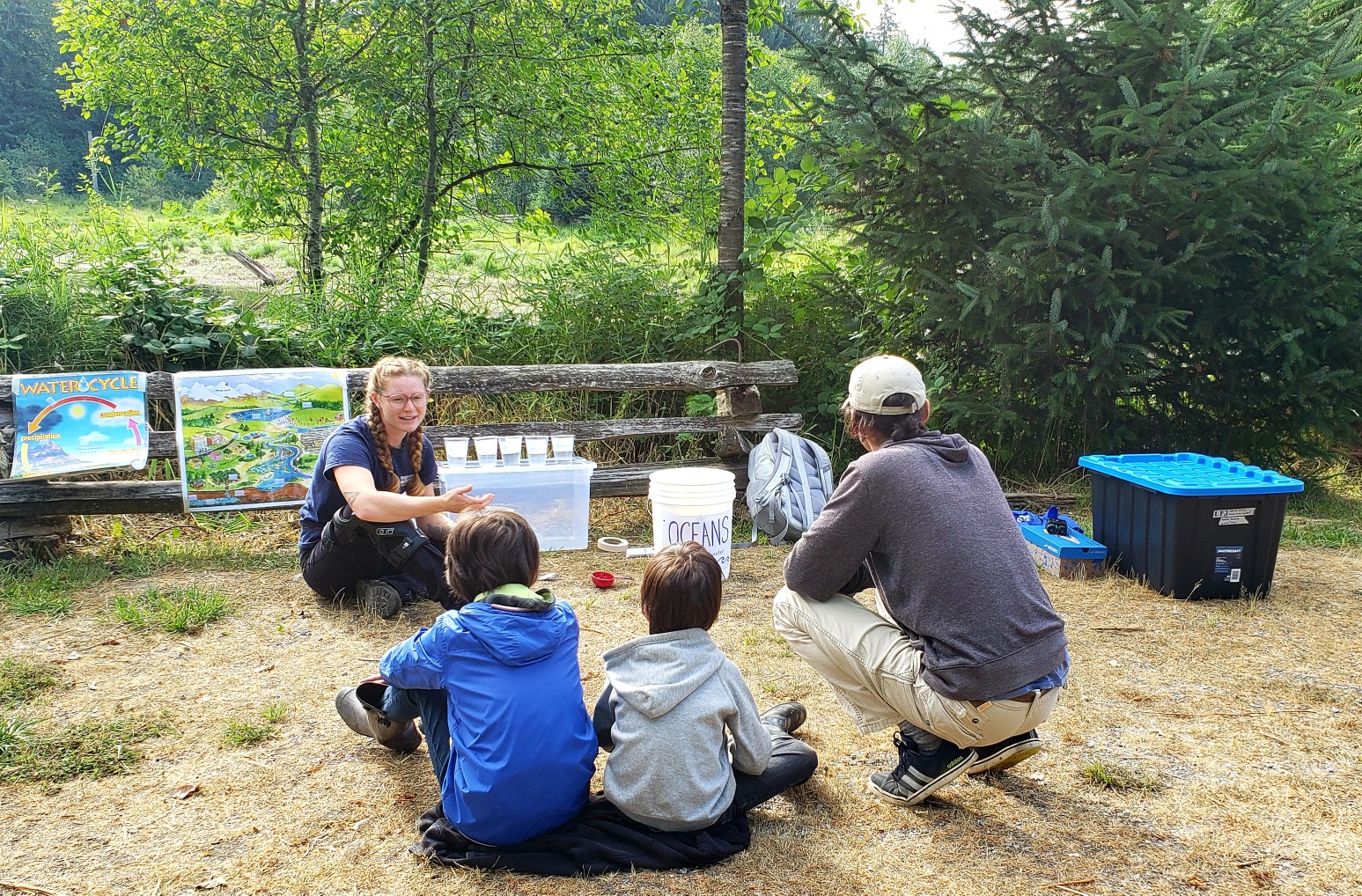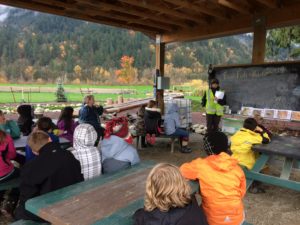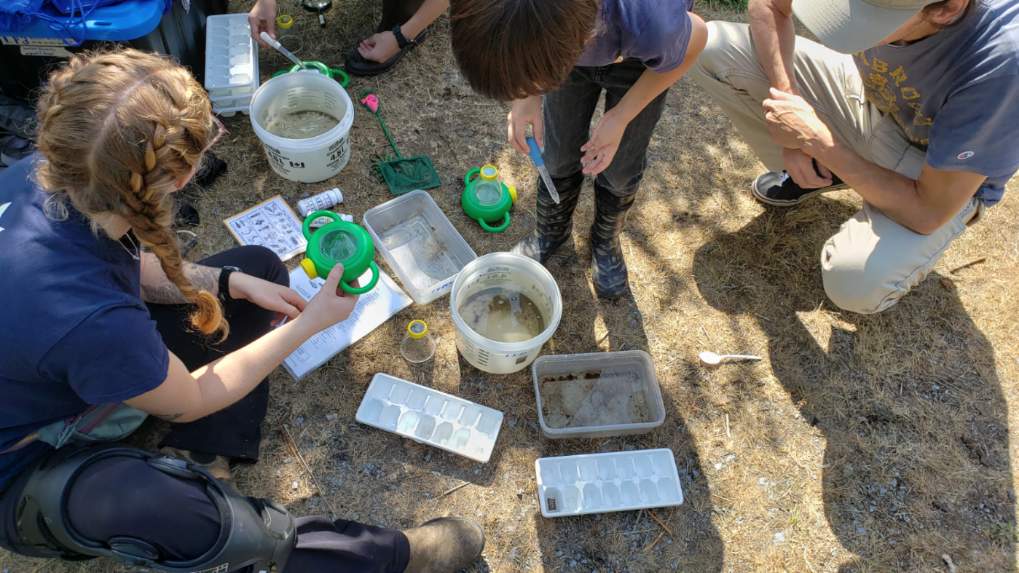
Purpose: Inspiring and educating people to care for watersheds through nature-based education opportunities.
Watershed Discovery is for everyone! We welcome people of all ages and education levels interested in learning about watersheds and biodiversity. Watershed Discovery contains lessons that connect education with outdoor activity and games. Learn about local watersheds and the connections between water, land, plants, animals and people and how they create a profound sense of place and meaning. Each lesson connects to BC's Course Curriculum, contains hands-on participation, games, a nature walk, and a science or art activity. These nature-based education opportunities are offered directly in your community. They are best performed in a local outdoor space, and can be adapted for in-classroom, school yard, or indoor community spaces.
Overview of Lesson Plans
Why is Watershed Discovery right for you?
Experience the Value of Nature
Our nature-based outdoor learning lessons benefit everyone! Exploring natural environments, being immersed in and investigating the natural world, even viewing natural landscapes and topics on a computer screen or printed on paper, have a positive impact on mental and physical human health.
Humans rely on nature every single day. We use renewable and non-renewable resources for drinking water, food, building materials, medicine, and anything you can think of! Look around and take in your surroundings, it is easy to forget that nature gives us everything.
Some of the key ways nature benefits humans are:
Human Health

Being in nature positively contributes to:
Economic Health

Nature positively supports our economy:
Ecological Health

Nature positively supports ecological health by:
On top of all that, nature continues to give the gifts of beauty and art!
How is Watershed Discovery delivered?
There are 3 main delivery methods:
Thanks to the contributions provided through BC Wildlife Federation’s Wetlands Workforce Program, as part of the Healthy Watersheds Initiative delivered by the Real Estate Foundation of BC, with financial support from the Province of British Columbia as part of its $10-billion COVID-19 response, we are currently able to provide this opportunity free of charge ($0.00) until November 2021.
If you had a great time and are interested in giving back after your experience, we graciously accept donations. Your donation is an investment in clean water, clean air, and healthy communities. Your investment goes directly towards on-the-ground actions to restore salmon habitat and streams, enhance wetlands, and educate communities about sustainable, resilient watersheds. You can make a donation here.
After November 2021, to book an event please contact us for costs and availability.
Are you interested in registering for an outdoor group learning session about one or more of the above lesson plans? Check out our available events below and sign up for a free 2-hour learning session today for a group of up to 30!



Big Ideas
The main learning objectives for this lesson are:
Watch our video below to learn more about this lesson and see if it's a good fit for you and your group.


Big Ideas
The main learning objectives for this lesson are:



Big Ideas
The main learning objective for this lesson are:
Watch our video below to learn more about this lesson and see if it's a good fit for you and your group.
Water Quality (video lesson)
Aquatic Bugs (video lesson)
Fish (extra video lesson)
This is a block of text. Double-click this text to edit it.